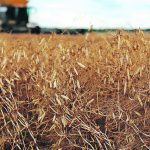U.S. Department of Agriculture study finds that a no-till wheat and pea rotation is the most environmentally sustainable
WINNIPEG — American scientists have confirmed what Canadian farmers already know — zero tillage is good for the environment and for crop production. U.S. Department of Agriculture researchers looked at the long-term effects of three cropping rotations in Montana — summer fallow-wheat, no-till continuous wheat and no-till wheat-pea. After crunching the data, they concluded that […] Read moreTag Archives no-till

KAP to pursue soil health roundtable
Keystone Agricultural Producers is looking for other commodity group partners on the conservation-based initiative
Glacier FarmMedia – Keystone Agricultural Producers plans to establish a soil health roundtable, encouraged by the recent release of a Senate report on the health of Canadian soils. The report, “Critical Ground: Why Soil is Essential to Canada’s Economic, Environmental, Human and Social Health” was released by the Senate’s agriculture and forestry committee in June. […] Read more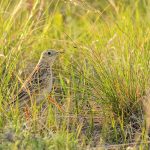
Bird survey focuses on regenerative farming
Manitoba initiative looks at how regenerative agriculture affects bird populations, species at risk as well as biodiversity
Bird experts across the province have partnered with the Manitoba Forage and Grassland Association to conduct its second annual bird survey. Tim Poole, species at risk biologist with the provincial government, and Marissa Bedard and Meredith Stoesz from Important Bird Areas, recently wrapped up field visits to nine regenerative agriculture farms operated by members of […] Read more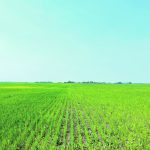
Organic producers attempt to make no-till work
Soil microbiology, diversity and nutrient cycling among considerations if farmers want to ditch the iron, consultant says
Producers went back to biology class during a recent SaskOrganic’s field day in Spalding, Sask., and biodiversity was one of the lessons. Kevin Elmy, cover crop consultant with Imperial Seed, urged producers to design systems that will increase species diversity. A truly diverse system, he said, should include a legume, grass and a forb to […] Read more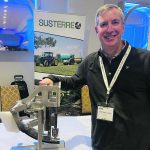
Water jet cuts through no-till residue

Canola feels there is room for improvement in U.S. SAF tax credit
The industry plans to continue lobbying the U.S. government for better access to the sustainable aviation fuel program
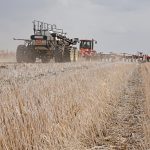
U.S to incentivize climate friendly farming
Farmers offered money to adopt practices that store carbon in the soil, but experts doubt the approach will be effective
WASHINGTON (Reuters) — President Joe Biden’s administration is offering farmers money to adopt practices that store carbon in the soil to fight climate change, but soil science experts and a review of U.S. Department of Agriculture research indicate doubt that the approach will be effective. Planting cover crops and reducing tillage are key to the […] Read more


